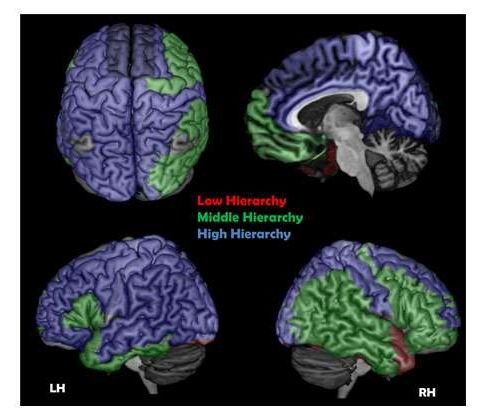New research published in the New Journal of Physics tries to decompose the structural layers of the cortical network to different hierarchies enabling to identify the network’s nucleus, from which our consciousness could emerge.
The brain is a very complex network, with approximately 100 billion neurons and 100 trillion synapses between the neurons. In order to cope with its enormous complexity and to understand how brain function eventually creates the conscious mind, science uses advanced mathematical tools. Ultimately, scientists want to understand how a global phenomenon such as consciousness can emerge from our neuronal network.
A team of physicists from Bar Ilan University in Israel led by Professor Shlomo Havlin and Professor Reuven Cohen used network theory in order to deal with this complexity and to determine how the structure of the human cortical network can support complex data integration and conscious activity. The gray area of the human cortex, the neuron cell bodies, were scanned with MRI imaging and used to form 1000 nodes in the cortical network. The white matter of the human cortex, the neuron bundles, were scanned with DTI imaging, forming 15,000 links or edges that connected the network’s nodes. In the end of this process, their network was an approximation of the structure of the human cortex.
